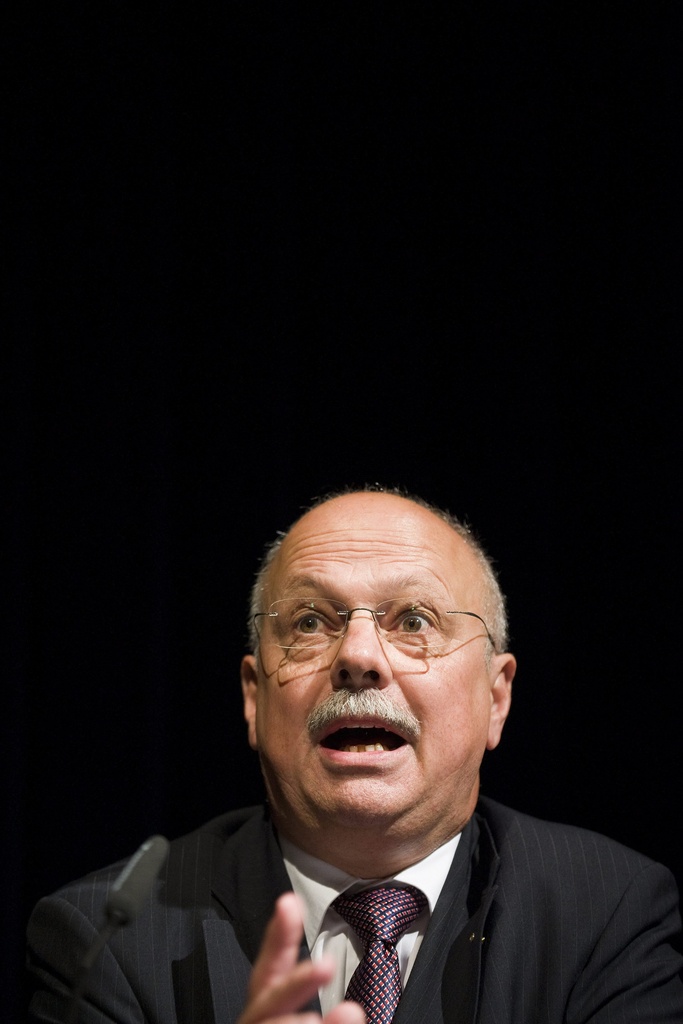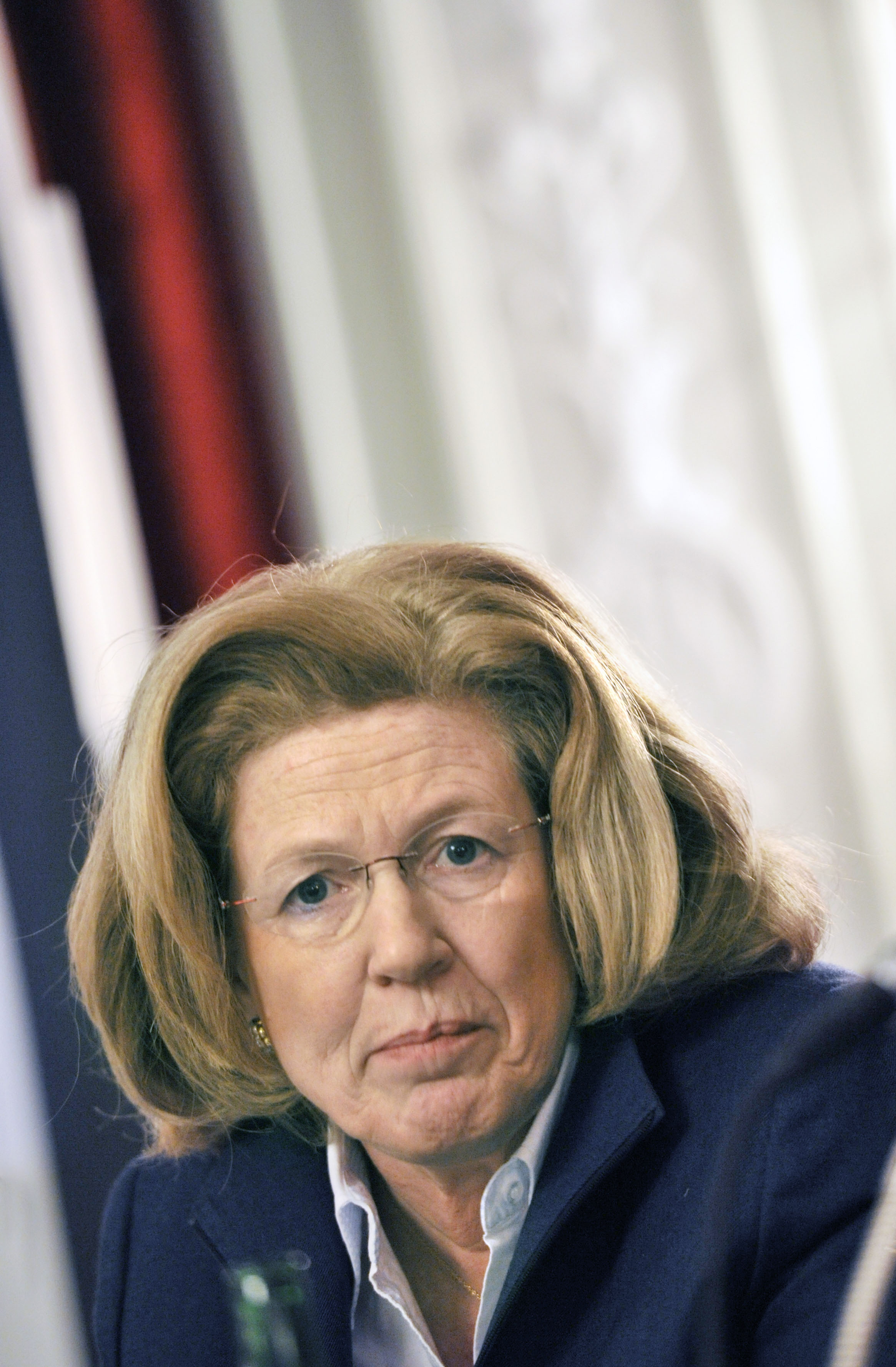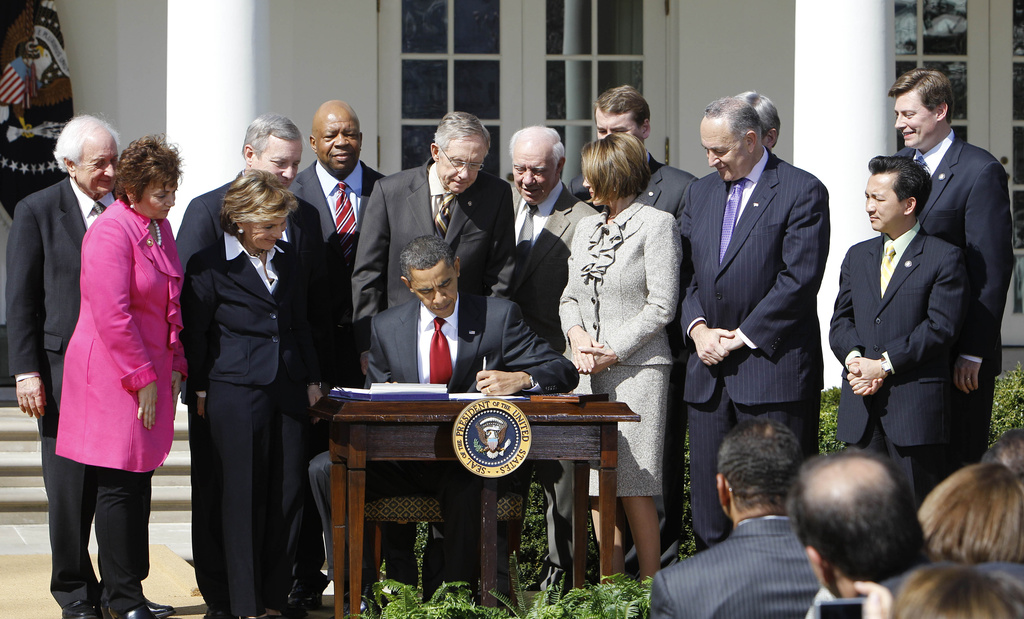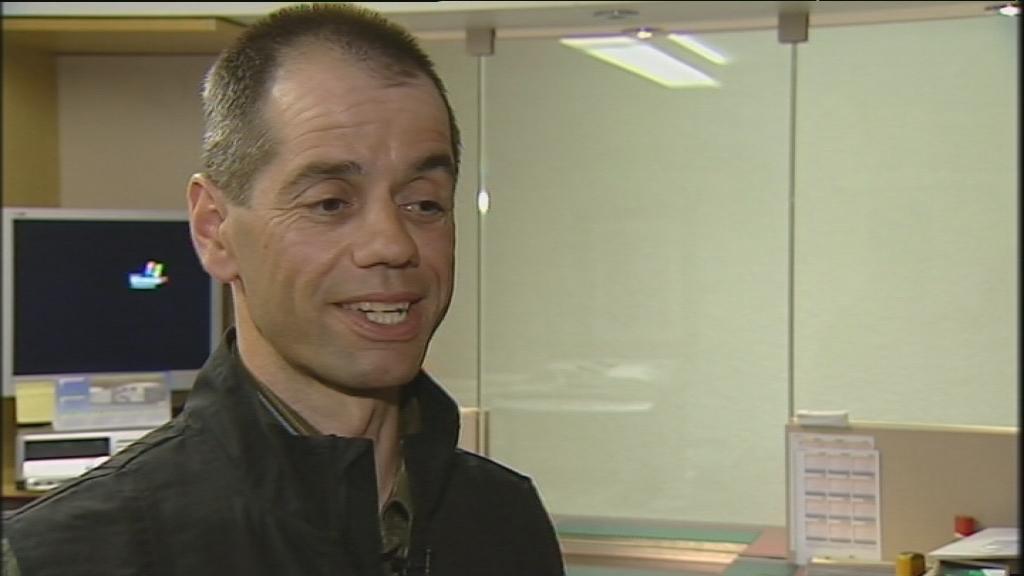Private bankers take attack to regulators

The Swiss Private Bankers Association has mounted an offensive against a regulatory “over-reaction” that is churning out new rules on a “practically daily” basis.
Bankers complained of a series of ill-advised knee-jerk reactions to the global tax evasion clampdown after regulators were spooked by the prosecution of UBS in the United States.
Yves Mirabaud, president of the Geneva Private Bankers Association, blamed the situation on debt-ridden countries that are intent on “winning back tax income at any cost” to fill holes punched into their budgets by the financial crisis.
But he pointed out that investment banks, ratings agencies and governments were by far more to blame than private banks for the meltdown.
“Just so that no false impressions are given: in the aftermath of the financial crisis private banks in no way denied that improvements needed to be made to regulation and supervision,” Mirabaud told Thursday’s annual Swiss Private Bankers Association meeting in Bern.
“That the crisis brought shock and worry is quite understandable, but it is also well known that fear is a poor counsellor,” he added.
Radar intensified
But Swiss pressure group Berne Declaration, which has long campaigned against certain banking practices in Switzerland, held a different view.
“It was a lack of regulations and oversight that almost brought down UBS, the Swiss financial system and the entire economy,” spokesman Andreas Missbach told swissinfo.ch. “It is entirely understandable that Finma [the Swiss Financial Markets Supervisory Authority] now wants to limit the risks banks take.”
He added: “It is conceivable that smaller private banks thought they could operate below the radar of regulators. But if Switzerland is serious about its new strategy of only accepting ‘clean’ assets, then there has to be a strong regulatory effort behind this claim.”
Mirabaud was particularly critical that some of the directives issued by Finma were issued without proper consultation or explanation of why they were needed.
Another bone of contention was a position paper put out by Finma in October 2010 outlining the risks of cross-border banking and demanding that Swiss banks comply with international laws.
Recognising risk
While Finma declined to comment on the private bankers’ comments, spokesman Tobias Lux said it was vital that banks keep to the straight and narrow.
“The case of UBS showed very clearly that there is a risk of dealing with clients in other countries when there are differences between Swiss law and the law of that country,” he told swissinfo.ch.
“We just want to make sure that the banks are aware of these issues and that they manage their risks to minimise potential problems.”
Private Bankers Association chairman Konrad Hummler pointed out the way changes should be made by signposting the impending deals with Britain and Germany that offer a way out of the tax evasion impasse.
The deals, still being negotiated, would impose a withholding tax on foreign assets deposited in Swiss banks without triggering an automatic exchange of client information.
Europe/US divide
Hummler was hopeful that the completion of these treaties with the European Union’s biggest economy (Germany) and the most important financial market (London) would take some of the wind out of the Brussels campaign to end Switzerland’s status as a tax haven.
The private banks reported on Thursday that European clients had remained faithful throughout the tax evasion battle, leaving Swiss institutions in good shape after the financial crisis.
But Hummler was less optimistic about the cross-border private banking business in the United States where his bank, Wegelin, has stopped its activities.
A new law, called the Foreign Accounts Tax Compliance Act (Fatca), will replace existing rules at the start of 2013 and start demanding that banks declare the offshore accounts and trading activities of US “persons”.
Hummler labelled Fatca a “lose-lose situation” as the extra costs of implementing the new system could drive away foreign investment.
“In view of these costs, many institutions will turn their backs on the American financial system just at the time that the country faces an enormous demand for financing,” he said.
Nicolas Pictet, vice-chairman of the Swiss Private Bankers Association, presented a forecast of market conditions for the rest of the year.
The global economy faces a number of opposing pressures that could create cracks as different regions moved in opposite directions, he said.
The threat of rising inflation could decouple emerging economies, in particular China, from Western nations that are facing the opposite terror of deflation.
At the same time, opposing monetary policy in Europe and the US threatens to pull these two regions apart. The US is currently printing more money in a bid to stimulate its economy while Europe is staring at a round of austerity measures to curb national debt.
Those debt concerns may get worse in Europe, with Portugal tipped to follow Greece and Ireland along the bail-out path. If other economies follow, then the EU’s bailout cash pile may run dry.
The Swiss franc may come under greater pressure if currency volatility remains. Swiss exporters would be dealt a further blow if the franc strengthens further against the euro or the dollar.
However, the Swiss economy is still in relatively good shape, Pictet reminded the conference. An unemployment rate of 3.8% is expected to fall to 3.1% this year, compared with the current 10% levels found across Europe.
Pictet ended with the more upbeat prediction that the global economy in 2011 would not witness a double dip recession.
The organisation was founded in 1934 when Swiss Banking Law came into force. This legislation recognises the private bankers’ special position and status.
The SPBA today has 13 members, who employ about 6,000 people around the world.
Private bankers are subject to unlimited liability with their personal assets.
Originally, wholesalers, brokers, or forwarding agents, they specialised in credit business and bills of exchange related to goods trading. Nowadays they are specialists in asset management.

In compliance with the JTI standards
More: SWI swissinfo.ch certified by the Journalism Trust Initiative





You can find an overview of ongoing debates with our journalists here. Please join us!
If you want to start a conversation about a topic raised in this article or want to report factual errors, email us at english@swissinfo.ch.